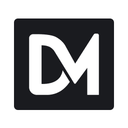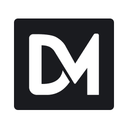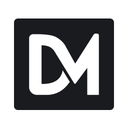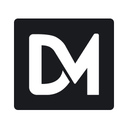
Design Manager Review 2025: Features, Pricing & More

Design Manager streamlines project management for interior designers with its comprehensive features. While it offers robust client management, beginners might find the learning curve steep.
- Comprehensive project management features.
- User-friendly interface for designers.
- Robust client and vendor management.
- Limited customization options.
- Steep learning curve for beginners.
What is Design Manager?
Pros and Cons of Design Manager
- Design Manager offers a wide range of project management features that cater specifically to interior designers, making it easier to manage projects from start to finish.
- The software is designed with a user-friendly interface that makes it easy for designers to navigate and use, even if they are not tech-savvy.
- With Design Manager, managing client relationships is a breeze, thanks to its robust client management features that help keep track of client interactions and preferences.
- While Design Manager offers many features, the customization options are somewhat limited, which might not suit designers looking for highly tailored solutions.
- For beginners, the software can be a bit overwhelming at first, requiring some time to fully understand and utilize all its features effectively.
Design Manager Review: Is It Really That Good?
Value to Price
When I first started using Design Manager, I was impressed by the value it offers for its price. The comprehensive suite of features tailored for interior designers makes it a worthwhile investment. You get project management, client and vendor tracking, and financial reporting all in one place. Compared to other tools in the market, Design Manager provides a robust solution without breaking the bank. It's a tool that truly understands the needs of designers, offering a balance of functionality and affordability.
Ease of Use
Navigating through Design Manager is generally straightforward, especially for those familiar with design software. However, if you're new to such tools, it might take a bit of time to get accustomed to its interface. I found that once you get the hang of it, the workflow becomes intuitive. The software is designed to streamline processes, but a little patience is required initially. It's worth the effort, as the efficiency gains are significant once you're up to speed.
Functionality
Design Manager excels in functionality, offering a range of features that cater specifically to the needs of interior designers. From project management to client and vendor tracking, the tool covers all bases. I particularly appreciate the financial reporting capabilities, which help keep projects on budget. The software integrates various aspects of the design process, making it a one-stop solution. It's a powerful tool that enhances productivity and organization, making it a favorite among designers.
Scalability
As your design business grows, Design Manager scales with you. I found that the software handles increased project loads and client lists with ease. It's designed to accommodate growth, offering features that support expanding businesses. Whether you're a solo designer or part of a larger firm, Design Manager provides the tools needed to manage projects efficiently. The scalability ensures that the software remains a valuable asset as your business evolves.
Integrations
Design Manager offers a decent range of integrations, allowing you to connect with other tools you might already be using. While it doesn't have the most extensive integration library, it covers the essentials. I found that the available integrations enhance the software's functionality, making it easier to streamline workflows. It's a practical feature that adds value, especially if you're looking to consolidate your design tools into one cohesive system.
Customer Support
The customer support provided by Design Manager is commendable. Whenever I had questions or needed assistance, the support team was responsive and helpful. They offer various resources, including tutorials and guides, to help users get the most out of the software. It's reassuring to know that support is readily available, making the user experience smoother. The quality of support is a significant factor in why I continue to use Design Manager.
Security
Security is a priority for Design Manager, and it shows. The software implements robust security measures to protect sensitive client and project data. I appreciate the peace of mind that comes with knowing my information is secure. The security features are well-designed, ensuring that data breaches are minimized. It's an essential aspect of the software that adds to its overall reliability and trustworthiness.
Key Features of Design Manager
Client Management
Managing clients with Design Manager is a breeze. The software offers robust features that help keep track of client interactions, preferences, and project details. I found it particularly useful for maintaining organized client records, which is crucial for delivering personalized service. The client management tools are intuitive and easy to use, making it simple to stay on top of client relationships. It's a feature that enhances the overall efficiency of the design process.
Financial Reporting
Financial reporting in Design Manager is a standout feature. It provides detailed insights into project budgets, expenses, and profitability. I appreciate how it simplifies financial management, allowing me to focus more on design work. The reports are easy to generate and understand, making it simple to keep projects on budget. It's a feature that adds significant value, especially for designers who need to manage multiple projects simultaneously.
Project Tracking
Keeping track of projects is seamless with Design Manager. The project tracking features allow you to monitor progress, deadlines, and deliverables effectively. I found it helpful for staying organized and ensuring that projects are completed on time. The ability to track multiple projects simultaneously is a major advantage, making it easier to manage workloads. It's a feature that enhances productivity and keeps projects on track.
Task Management
Task management in Design Manager is designed to streamline workflows. The software allows you to create, assign, and track tasks with ease. I found it particularly useful for managing team collaboration, ensuring that everyone is on the same page. The task management tools are intuitive and easy to use, making it simple to stay organized. It's a feature that enhances efficiency and keeps projects moving forward.
Time Tracking
Time tracking is an essential feature in Design Manager, helping you monitor how time is spent on projects. I found it useful for billing and ensuring that projects stay within budget. The time tracking tools are easy to use, providing accurate records of time spent on various tasks. It's a feature that adds value, especially for designers who need to manage multiple projects and clients.
Vendor Management
Managing vendors is simplified with Design Manager. The software offers tools to track vendor interactions, orders, and payments. I found it helpful for maintaining organized vendor records, which is crucial for efficient project management. The vendor management features are intuitive and easy to use, making it simple to stay on top of vendor relationships. It's a feature that enhances the overall efficiency of the design process.
Design Manager Pricing and Plans

Design Manager Pricing Plans
- Integrated purchasing system to streamline orders.
- Robust accounting features for financial management.
- Client portal for seamless communication and collaboration.
- Advanced reporting capabilities for data-driven decisions.
Who Is Design Manager Best For?
Design Manager is perfect for interior designers seeking a comprehensive project management solution. With features like client and vendor management, it streamlines the design process, enhancing efficiency and organization.
- Ideal for interior designers
Design Manager is tailored for interior designers, offering features that cater specifically to their needs. From project management to client and vendor tracking, the software provides a comprehensive solution that enhances efficiency and organization.
- Great for design firms
Design Manager is an excellent choice for design firms looking to streamline their operations. The software offers tools that support project management, client interactions, and financial reporting, making it easier to manage multiple projects and clients simultaneously.
- Perfect for growing businesses
As your design business grows, Design Manager scales with you. The software is designed to accommodate increased project loads and client lists, offering features that support expanding businesses. It's a valuable asset for designers looking to grow their operations.
Frequently Asked Questions
 What features does Design Manager offer for project management?
What features does Design Manager offer for project management?
 How does Design Manager handle client management?
How does Design Manager handle client management?
 Is Design Manager suitable for growing design businesses?
Is Design Manager suitable for growing design businesses?
 What integrations does Design Manager offer?
What integrations does Design Manager offer?
 How does Design Manager ensure data security?
How does Design Manager ensure data security?
 What kind of customer support does Design Manager offer?
What kind of customer support does Design Manager offer?
 How does Design Manager handle financial reporting?
How does Design Manager handle financial reporting?
 Is Design Manager user-friendly for beginners?
Is Design Manager user-friendly for beginners?
 What makes Design Manager ideal for interior designers?
What makes Design Manager ideal for interior designers?
 How does Design Manager handle vendor management?
How does Design Manager handle vendor management?
Which is Better: Design Manager or Its Competitors?

Martin Lunendonk
Martin Lunendonk is a senior tech writer specializing in website builders, web hosting, and ecommerce platforms. With a background in finance, accounting, and philosophy, he has founded multiple tech startups and worked in medium to large tech companies and investment banking, bringing deep expertise and reliable insights to his software reviews.







